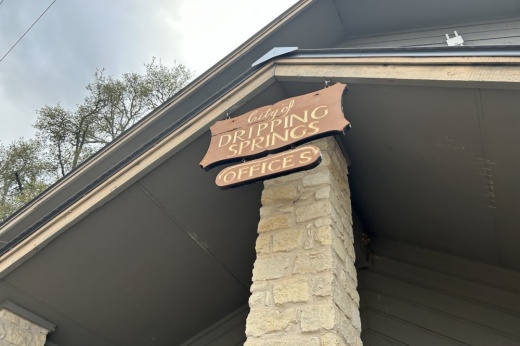The vote came two weeks after officials approved an appeal to some of these fees from an engineering firm, Engineering Surveys and Services.
The full story
Site development fees are meant to pay city staff for their time processing and reviewing permits from a developer. They are based on the value of site improvements—support structures such as paving, septic systems or landscaping—to the project, said Dripping Springs planning director Tory Carpenter.
Due to properties in the city’s ETJ taking less time for city staff to review, as specific ordinances do not apply to them, city staff recommended to council the 20% reduction in fees for ETJ projects compared to projects within city limits.
The new city fees can be viewed here.
How we got here
A proposed redevelopment of self-storage facility 10 Federal Storage in order to modernize it helped spark the fee reduction discussion. The site is located at 3975 Hwy. 290, Dripping Springs.
A civil engineer on the project, Matthew Kriete, sent a letter to city staff in January appealing a calculated site development fee of about $20,700.
The letter cited that no site improvements are proposed and that the city would not provide the property with sewer, water or electricity.
“This is a building project on an existing subdivided lot,” Kriete said at a council meeting Jan. 16. “What that ends up meaning is a vast majority of the site work costs really are driven by building code items, therefore, they’re regulated by Hays County, not [the city].”
City staff granted a reduction of the total fees to about $16,500, approved at a March 5 council meeting. The vote was postponed two months as council requested staff to assess if site development fees needed changing.
Also of note
Senate Bill 2038, passed during the 88th legislative session, went into effect in September. The law allows residents of an ETJ to leave the city’s authority through a petition or election. It also revokes previous state law that allowed a city’s ETJ to naturally expand as the city annexed new territories.
In Dripping Springs, over 30 properties have left the ETJ as of January, according to city documents.
What’s next
The fee reduction will go into effect March 19. For more information, visit www.cityofdrippingsprings.com.





